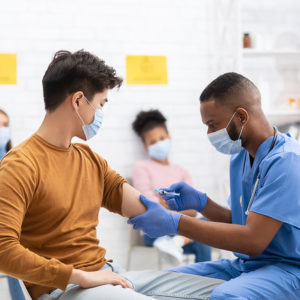As the winter phase of the COVID pandemic approaches, there has been a reshuffling of the cards: Several vaccines will be available shortly to the public, more quickly than anticipated.
Currently, it is not clear which vaccine will prove superior based on cost, availability and effectiveness, but no matter how effective and safe they are, public support for, and acceptance of them, is essential.
This is a critical area where our health officials must roll up their sleeves and improve their efforts to communicate with the public.
So far, the communication record of the public health officials in the pandemic has garnered a generous gentleman’s C — at best. Last winter, most minimized the threat the virus posed, initially to avoid panic and out of fear of xenophobia. Then came an immediate shift into DEFCON 1, essentially sowing confusion on what the actual risk of COVID was.
From there came the backtrack on masks: first of no benefit, then beneficial but to be rationed carefully, and eventually full-mask advocacy with an especial fervor. The common-sense message of social distancing was also compromised when physicians were more than willing to suspend distancing in the name of political causes.
Either large crowds risk viral spread or they do not, independent of social justice. People pick up on these kinds of things.
Perhaps the most damaging blow to the public trust was the failure of the public health community to anticipate and communicate the social, economic and public health aftermath of a lockdown.
Testifying before Congress in May, Dr. Anthony Fauci acknowledged his lack of expertise in matters economic — not that he should be expected to be an expert in such matters — but it suggested a disinclination on his part and that of his professional colleagues to acknowledge the damage of the unintended consequences of closing down large segments of society.
The net effect of all this hurly-burly is that officials have put any claim they have to public trust in jeopardy.
And trust is paramount. With a vaccine rollout, the public health community must refine their approach to addressing the concerns and questions of their intended audience — patients, politicians and the citizenry.
A banal bromide like “trust the science” helps neither science nor the public in the long run.
The key is effective communication: neither proselytizing nor bland recitation of the facts. So here are some keys to informing the public and helping people make informed decisions about COVID vaccinations:
— State the benefits and risks with the knowledge that the information is necessarily incomplete. This should be done in a way that people can understand and allows them to make reasonable comparisons.
— Don’t pretend to know more than you do. There is plenty we do not know about these new vaccines. Tell the public that. Reassure them that you are making every effort to stay abreast of every development and will inform them of your findings – and don’t cherry-pick data. Cherry-picking data — selecting one example to prove a point while ignoring a counterexample — is a form of intellectual dishonesty.
Scientists have a tendency to be patronizing about things the public does not understand. Resist that tendency. People will harbor misconceptions; be alert to addressing them. Explain, not in an authoritative or dismissive way, why the public may be mistaken in its beliefs.
The facts may change and your opinion might change as well. Say why you changed your mind. Every time you go before the public, remember what you’ve said before. Nothing undermines credibility more than contradicting your prior remarks.
Be prepared for the unexpected. Don’t pretend you knew it was coming. A classic example was in 1976 when, based on the advice of his public health experts, President Ford created a plan to vaccinate every man, woman and child in the United States for the Swine Flu.
The flu barely materialized, but hundreds of vaccinated patients developed an elevated risk for the serious neurologic condition, Guillain-Barre syndrome.
What the medical profession tells the public, and how it tells them, is not only important in the context of a COVID vaccine. It is also important for what is left to future generations.
We will eventually recover from COVID but this is not our last public health crisis. One of the most important things doctors can do is develop better principles of communication and refine them to minimize future health threats.
Will the public line up for a vaccine? The Old Testament advises, “The Lord hath created medicines out of the earth; and he that is wise will not abhor them.”
The ancient wisdom of that one sentence is the message our public health people must impart effectively.

